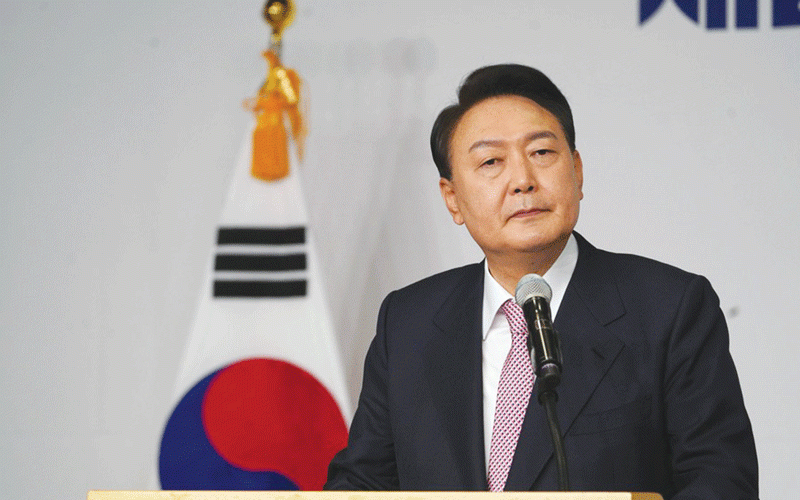
“All political lives, unless they are cut off in midstream at a happy juncture, end in failure, because that is the nature of politics and of human affairs,” wrote British politician Enoch Powell half a century ago — and then proceeded to demonstrate the truth of this proposition in his own lengthy, but undistinguished political career.
Jacinda Ardern, New Zealand’s soon-to-be ex-prime minister, has created her own “happy juncture”. A fortnight ago, to the astonishment of practically everybody, she announced that she would resign from the office because: “Politicians are human. We do all that we can for as long as we can, and then it’s time. It’s time.”
That’s not universally true, of course. Many, perhaps most politicians, cling on to power long past their sell-by dates. Indeed, they hang on for as long as the law and the voters allow — and in some cases even past that point, as the post-eviction careers of Brazil’s ex-president Jair Bolsonaro and United States ex-president Donald Trump illustrate.
Short of those insurrectionary extremes, the woods are full of dethroned and deluded former leaders who imagine they can still regain power. Consider British ex-prime minister Boris Johnson, for example, who is clearly plotting a comeback despite his humiliating ejection from office by his own party last year.
Ardern is different. She did well in her five-and-a-half years in office, which included a mass-casualty terrorist attack, a volcanic eruption, and the Covid-19 pandemic. Her crisis-management skills were an unexpected bonus, but her real strength was a calm and empathetic approach to every problem she dealt with.
And yet her power and her popularity inexorably eroded, because that is the way politics works. Leaders have to make choices, and each one is bound to alienate some people. Probably the most costly in Ardern’s case was her decision to “Go Early and Go Hard” in isolating New Zealand to protect it from the Covid virus.
The policy undoubtedly saved many lives in the pre-vaccine first year of the pandemic, but the extreme travel bans were probably maintained for too long, and the backlash grew with time. So did the anti-vaxxer movement, whose hate campaign probably did a lot to wear her down.
As another former New Zealand prime minister, Helen Clark, put it: “The pressures on prime ministers are always great, but in this era of social media, click-bait, and 24/7 media cycles, Jacinda has faced a level of hatred and vitriol which in my experience is unprecedented in our country.”
- Young entrepreneur dreams big
- Chibuku NeShamwari holds onto ethos of culture
- LSU students win innovation prize
- Mhofela finally drops album
Keep Reading
Then add the global cost-of-living crisis, which is actually due mostly to the war in Ukraine, but is weaponised by opposition parties in every democratic country to attack the government in power. Ardern’s popularity at home has been in decline for the past year — but she is still the most popular politician in the country.
She is quitting anyway and some critics say that it’s because her Labour Party is doomed to lose the next election. She denies that, saying that Labour can win, but needs new leadership, and the numbers suggest that she may be right.
Three months ago, the two major parties, Labour and the centre-right National Party, were level-pegging in the opinion polls. Right now the National Party leads by 5,5%, but that’s almost within the margin of error when the sample is only 1 000 people. Her presence might make the difference in next October’s election, but she is suffering from burnout.
She didn’t use that word, but it’s clearly what has happened. As she said herself: “I know what this job takes, and I know that I no longer have enough in the tank to do it justice. It’s that simple.”
The hardest thing is knowing when to stop, but she has figured it out.
Is this because she is a woman? Probably not. Margaret Thatcher went down fighting after 11 years in office and only assassination removed Indira Gandhi after a total of 16 years in power.
Is it because she is a new mother? Perhaps in part. She is only the second national leader to give birth while in power, and having an infant and then a toddler at home is one of life’s most exhausting experiences, even if you have a great deal of help from your partner.
Her own assessment is that she can’t do the job justice any more and that’s greatly to her credit. Many in the Labour Party are angry at her right now because it feels like she left them in the lurch in an election year, but it was the right decision.
Men also suffer from burnout: everybody in demanding jobs is vulnerable. Maybe the average male politician would just soldier on instead, but burned-out people make poor decisions. She is only 42 and she will go on to do other things, but she needs a break.










